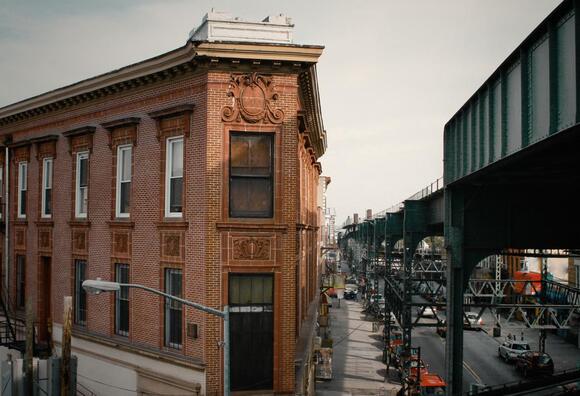The sounds of city life, for some New Yorkers, include passing trains, honking automobile horns, construction, ambulance sirens, music from bars, and footfall from upstairs neighbors.
You don’t have to, though, because the city never sleeps.
Experts claim that noise is dangerous as well as an annoyance. The U.S. Environmental Protection Agency lists speech impairment, hearing loss, sleep disturbance, high blood pressure, stress-related disorders, and lost productivity as issues linked to noise.
For forty years, noise expert and GrowNYC board member Arline Bronzaft has been researching and combating noise pollution in the city. She claimed that it is well worth the effort for New Yorkers to take basic, straightforward steps toward making their lives a little calmer.
Individuals often remark, “Oh, I’m used to it. I’m taking care of it. Dealing entails making an effort to block out the effects. Over time, the body expends more energy, according to Bronzaft. People believe that things don’t hurt them if they get used to them. Because of the increased energy need, the body is under more stress.
Increasing the quietness of your house
For people who rent or cannot afford major renovations, completely soundproofing an apartment is not an option because it can cost thousands of dollars. When looking for relief from city noise, New Yorkers can start by consulting the residential noise management instruction document provided by the city Department of Environmental Protection.
Here are a few tips to help reduce noise pollution in urban areas.
Carpets – Since hardwood floors reflect and enhance reverberant noise, covering the flooring with substantial cushioning and carpets can lessen household noise, such as footsteps.
Curtains: Thick curtains, like those composed of velvet or wool, have a strong acoustic block and absorbent effect. Adding a layer of vinyl to drapes that already exist can yield comparable outcomes.
Commercially available acoustic panels can be used to cover walls and ceilings in a home to absorb unwanted sound. This is ideal for anyone wishing to create a more cinema-like movie-watching experience or needing a quiet place for video conversations. One trick broken musicians employ, if aesthetics aren’t your thing, is to cover walls with empty cardboard egg cartons.
Door and window treatments: According to the DEP, doors and windows are the “acoustical weak link in the structure’s facade,” admitting most of the noise that enters dwellings from outside.
If changing them is not an option, adding a panel made of plexiglass or acrylic can assist reduce noise. All doors can also have rubber or vinyl gasketing installed underneath and around them to prevent noise from entering.
White noise: Although it may seem strange, broadcasting white noise through speakers can be a useful technique to muffle obtrusive noises.
Earplugs: Although they might seem obvious, reusable or disposable earplugs can help your ears and brain relax from the din of the city.
Apps: Some meditation applications have stories or even noises to assist you fall asleep while obstructing the sounds of the city.
Being aware of your rights around noise
Knowing their rights surrounding noise is one of the first things New Yorkers should think about, according to Bronzaft.
The noise regulation for the city, which was most recently revised in 2007, specifies allowed levels of noise for several types of noise, including construction and residential noise. The noise ordinance is enforced by the DEP and the NYPD, and residents of New York can report noise complaints online or by phoning 311.
In New York State, noise is protected by the warranty of habitability, which holds landlords accountable for keeping residences livable. Tenants should familiarize themselves with the particular clauses in their leases regarding noise, such as the demand for carpeting on the floors and quiet hours.
Put in some effort
Remembering that noise causes damage, each and every New Yorker has a responsibility to lessen their own and their neighbors’ exposure to it. Well, it’s good karma, at least.
To contribute to a more tranquil city, one can play music and TV shows at a moderate volume, use headphones, refrain from honking your horn at insignificant things, and be aware of and mindful of a building’s quiet hours.



